ANZ’s Shayne Elliott faces legacy hurdle; Westpac’s Steven Gregg in revival test
The new year is expected to herald the start of a widescale reshuffle at the top level throughout Australia’s major banks.
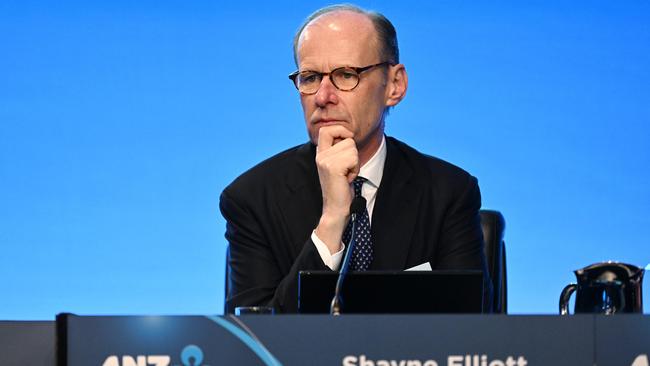
Gear up for executive shuffles at Australia’s top banks starting in 2024.
ANZ chief executive Shayne Elliott, 60, is starting his ninth year at the top in January and faces a key crossroads on February 20, when the competition tribunal decides on the fate of his $4.9bn deal to buy Suncorp Bank.
If the ACCC decision to block the deal is not reversed, investors and analysts say, the board – headed by Singtel Optus chairman Paul O’Sullivan – will be under pressure to return shareholders’ capital, and questions about Elliott’s tenure will be raised.
But with the acquisition’s benefits not flowing until 2027 to 2029, questions about Elliott’s future will remain even if the country’s fourth-largest lender is allowed to acquire its smaller rival.
Most investors don’t expect him to stay long enough to see the implementation through.
At Westpac, a new chairman presents an opportunity for change as Steven Gregg inherits a bank still being rebuilt and facing four years of negative shareholder returns under banking veteran Peter King, 53.
In 2019, as CFO, King handed in his resignation just weeks before he became duty-bound to take the top job when both the then CEO Brian Hartzer and chairman Lindsay Maxsted announced they would leave over a financial crimes scandal.
Days before, Westpac had been accused by money laundering watchdog, Austrac, of systemic misreporting of suspicious transactions, including some associated with possible child exploitation.
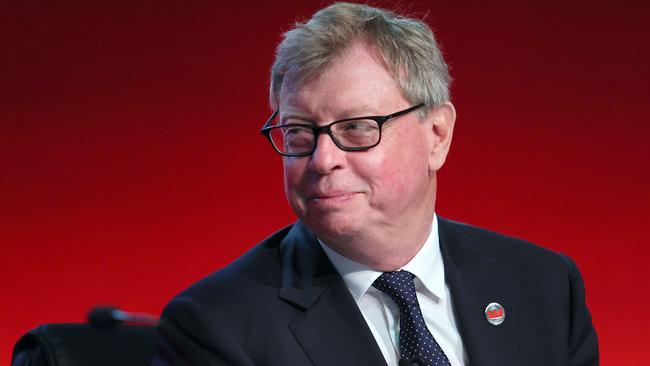
The debacle was partly due to outdated and sub-par systems, and even after $5.8bn in investments since 2019 and penalties of $1.4bn, the bank has still not finished fixing them.
At the other two big banks, Ross McEwan, 66, is starting his fifth year as NAB boss, while CBA’s Matt Comyn, 48, is said to be looking quite attractive to offshore headhunters as he enters his seventh year heading Australia’s largest bank in April.
According to KPMG, the median tenure of CEOs in Australia is currently 5.3 years, in line with global trends. In 2019, a PwC report said the global average tenure had been five years in that decade, down from eight in the early 2000s.
It is in this context that analysts, investors and headhunters all expect to see bank boards focusing on the crucial task of rolling out the next generation of bank leaders in the next six to 18 months.
“I often say that boards don’t matter until they do,” says Ownership Matters co-founder and director Dean Paatsch.
“Investors will want a seamless transition to a highly credentialed, well-performing internal successor. That is difficult, and that’s why boards do matter when it comes to managing issues of CEO performance and succession. Because if you let a dud in the top office, that will cascade right through the organisation.”
Succession talk at ANZ started years ago but intensified when former Google Australia managing director Maile Carnegie, 54, was promoted to become head of retail banking in March 2022.
The move catapulted Carnegie into the CEO spotlight, alongside Mark Whelan, 63. Whelan has overseen the successful turnaround of the institutional banking unit, which Elliott himself headed from 2009 to 2012, doubling the unit’s return on equity to 14 per cent, up from 7 per cent when he took over in early 2016.
Carnegie’s star has fallen since then, however, as the retail banking unit she heads has clawed back market share losses the bank copped during the pandemic by luring customers with cheap loans and generous cash back offers.
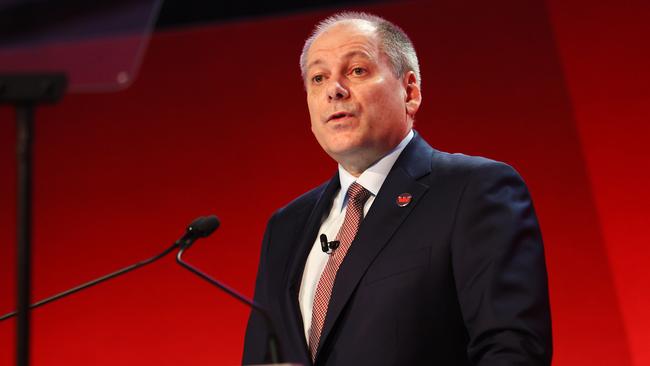
That resulted in a whopping 0.33 percentage point fall in its net interest margins – a key measure of bank profitability – in just six months to 2.06 per cent at the end of September.
Elliott has defended the strategy, but the margin erosion is among the worst for a retail unit in Australian banking history, prompting public criticism from many corners, including Comyn at CBA, who told this newspaper ANZ’s strategy was “value-destructive”.
This means the veteran Whelan, and Antonia Watson, 54, the head of ANZ’s New Zealand unit, are the clear internal frontrunners for the position. Whelan is universally praised as a solid banker, while Watson has the valuable experience of successfully running New Zealand’s largest bank and company.
Also in the mix, but not a clear favourite, is chief financial officer Farhan Faruqui, 58, a former investment banker and lieutenant of Whelan at the institutional unit who has recently been closely involved in the Suncorp acquisition.
Elliott’s eight-year legacy at ANZ includes reversing the bank’s previous strategy to expand into Asia, simplifying it by selling 30 non-core businesses such as wealth management and insurance, presiding over the turnaround of the institutional division, and ongoing efforts to digitise its banking platform.
The market will soon discover if the Suncorp acquisition, for which the bank raised $3.5bn in new capital in 2022, will be added to that legacy. The successful integration alongside its new digital banking platform ANZ Plus is also yet to be seen.
Most investors and banking analysts expect the Australian Competition Tribunal to reverse the ACCC decision and allow the deal to go through. Yet few expect Elliott to stay long enough to be accountable for the integration.
Take a glance at larger rival and Australia’s oldest bank, Westpac, to understand just how difficult it is to get banking integration right.
While the search for a new CEO often extends beyond national borders, past experiences with international candidates at the majors have been a mixed bag. Headhunters also say the banks are unlikely to need expensive international talent to manage homogeneous local strategies that for the most part mean business as usual.
“I don’t necessarily think that you have to go overseas,” says Graeme Bricknell, the Australia and New Zealand head of American executive search firm Korn Ferry.
“We’ve got some pretty good bankers here and in New Zealand for that matter. There’s always an advantage to understanding the domestic market and I do think all of the banks have good people underneath.”
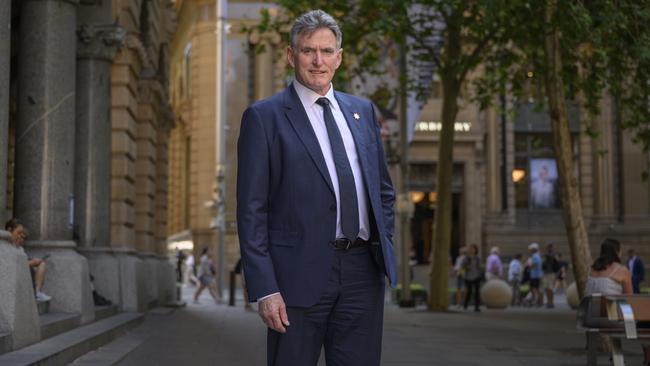
He declined to comment on specific banks or names but said top talent was being watched closely as the succession race played out, given changes often ricochet through the ranks and across banks.
“The risk is that those executives that miss out on the CEO role actually look at other opportunities if they are not chosen. Our view on a global basis is that Australian bankers are well regarded in Europe and the UK, where the banking system is quite similar.”
This puts the spotlight on high-performing group executives at all the top local banks, including those at CBA and NAB’s stables, even if they are the least in need of executive change.
At the top of the list is Comyn of CBA, whose strong relative performance compared to peers speaks for itself as the bank’s share price closes the year at all-time highs.
But it also includes the bank’s unit bosses: retail head Angus Sullivan, business banking boss Michael Vacy-Lyle, and New Zealand’s ASB bank head Vittoria Shortt.
NAB’s business and private banking head Andrew Irvine and personal banking head Rachel Slade are also seen as potential CEO candidates for a large bank.
At Westpac, insiders privately say King is well liked, highly energetic and recognised for his efforts improving the bank’s risk management systems, even if that task won’t be officially done until APRA endorses it and removes the capital add-on.
Still, Gregg, the Ampol chair and a surprising pick as incoming Westpac chairman given his lack of recent banking experience, will be under pressure to show investors the board can perform well and “can spot a good CEO when they see one”, in the words of a seasoned adviser who spoke on condition of anonymity.
“He could prove everyone wrong, but that board doesn’t have a lot of banking expertise so it is more likely that, at least in the short term, Steven will be influenced by Peter,” he says.
As he was officially appointed at Westpac’s AGM earlier this month, Gregg sat in as retail investors repeatedly highlighted the poor profits and returns they had endured in recent years, for which McFarlane apologised.
Things have improved in the four years since King and McFarlane replaced the previous management in the wake of the Austrac scandal.
This has largely been helped by ultra-cheap funding during the pandemic and the aggressive interest rate hikes that have boosted bank profits globally.
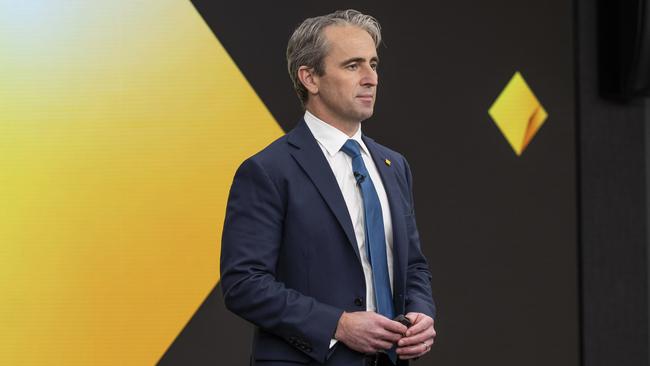
Yet, for eight years straight, King has not been paid long-term bonuses because the total shareholder return (TSR) hurdle has not been met. Average TSR metrics over the past four years have been negative since 2020 and the four year average was -9.27 per cent in 2023.
“We are conscious of it and the fact that we’re dealing with this historical matter where we didn’t integrate those acquisition technologies and processes in the past, which has caused really quite a cost burden on the organisation,” McFarlane told shareholders at the meeting.
Of the big four banks, Westpac has the lowest level of ownership among local institutional shareholders. However, this masthead did not find evidence of widespread calls to replace King as CEO. That’s so even when many believe Westpac is ready for change now that it is close to finishing its multi-year risk and regulatory upgrades, and is moving on to the integration of its back office systems.
“It is possible the new chairman could decide to do something there,” says DNR Capital chief investment officer Jamie Nicol.
“The stock is not that well held, so I don’t think the pressure is on as much as perhaps it should be, given the underperformance.”
Yetton was then reappointed the new head of a standalone consumer banking business, after he led that same unit between 2011 and 2015 under then CEO Gail Kelly. Anthony Miller – who is seen as the internal frontrunner – was moved from heading the institutional unit to the top of its reignited business banking division.
The reshuffle gave the banking heads a new mission to focus on growth.
But the next phase for the nation’s second-largest bank is arguably the most challenging yet, as it attempts to consolidate two-thirds of its 180 systems into “just” 60 over the next four years at a cost of about $2bn per year.








To join the conversation, please log in. Don't have an account? Register
Join the conversation, you are commenting as Logout